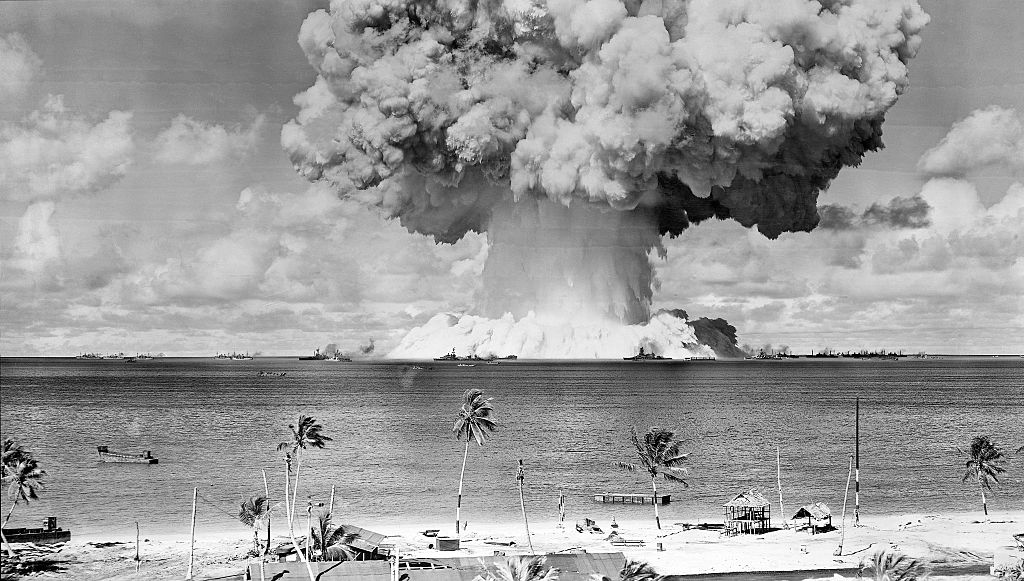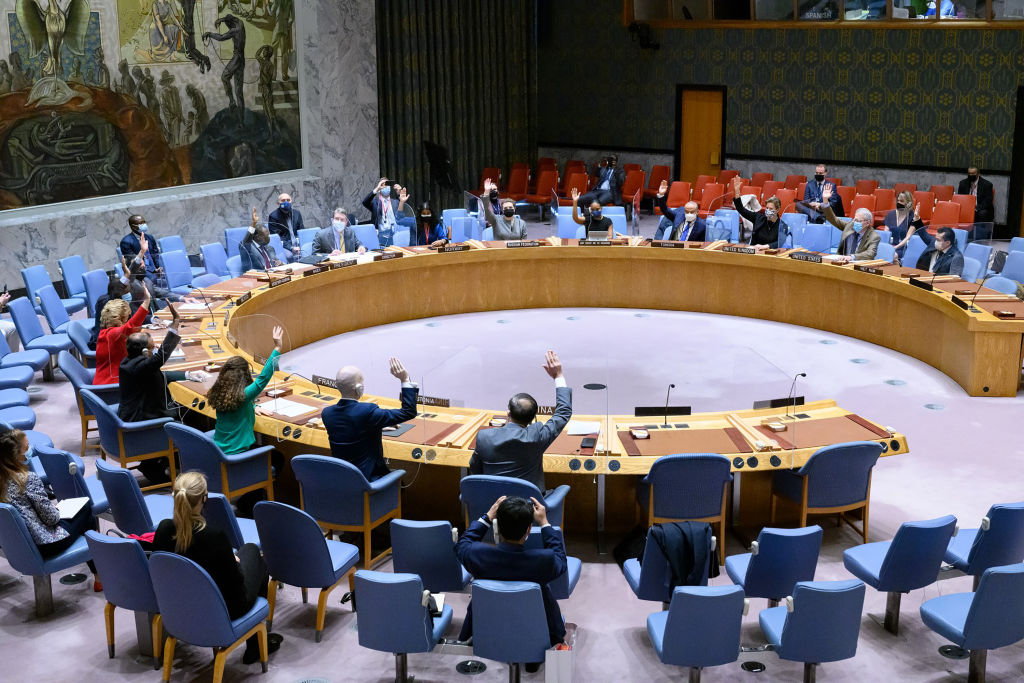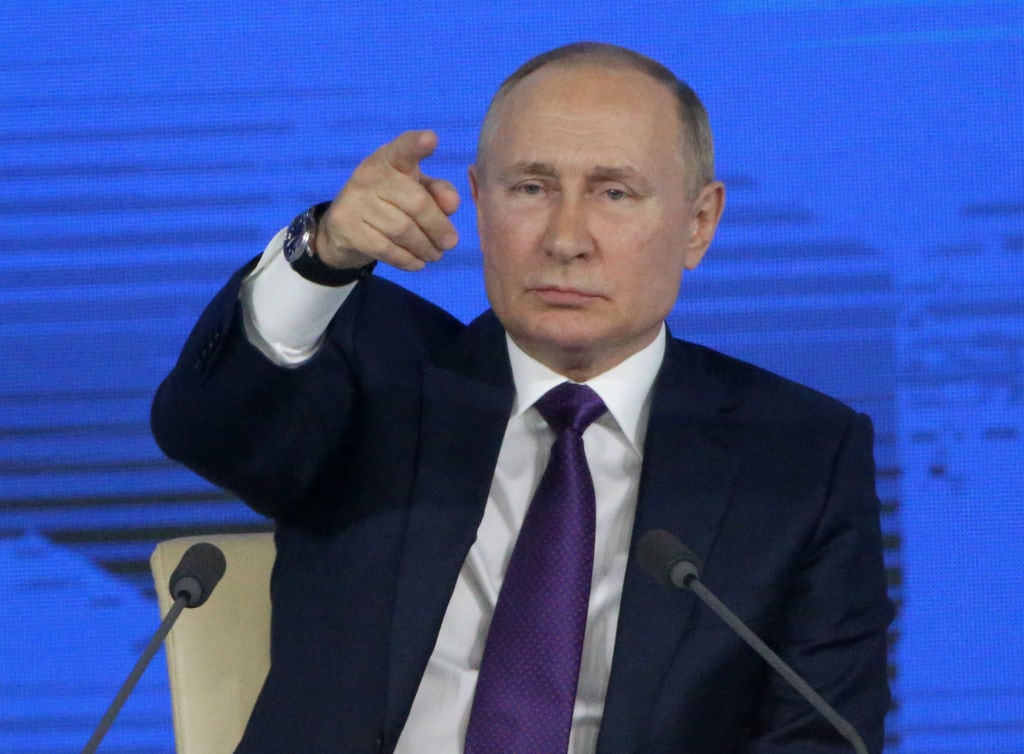-
February 2024
-
December 2023
-
November 2023
-
October 2023
- The Biden Impeachment Inquiry – Lesson
- The Biden Impeachment Inquiry – Quiz
- Israel vs Hamas: One Week in and Still at War – Lesson
- Israel vs Hamas: One Week in and Still at War – Quiz
- 2023 Nobel Prizes Announced – Lesson
- 2023 Nobel Prizes Announced – Quiz
- Trump Ordered Not to Mention Case Against Him – But Will It Last? – Lesson
- Trump Ordered Not to Mention Case Against Him – But Will It Last? – Quiz
-
September 2023
-
August 2023
-
July 2023
-
May 2023
-
February 2023
-
December 2022
-
November 2021
-
September 2022
-
August 2022
- The US Visits Taiwan Again – What Impact Will It Make? – Lesson
- The US Visits Taiwan Again – What Impact Will It Make? – Quiz
- Cold Showers and Hot Days: Europe Limits People’s Energy Use – Lesson
- Cold Showers and Hot Days: Europe Limits People’s Energy Use – Quiz
- Hidden Art Is Being Discovered Around the World – Lesson
- Hidden Art Is Being Discovered Around the World – Quiz
-
July 2022
- Last WWII Medal of Honor Recipient Will ‘Lie in State’ at US Capitol – Lesson
- Last WWII Medal of Honor Recipient Will ‘Lie in State’ at US Capitol – Quiz
- Canada and Denmark Make a Deal over Disputed Arctic Island – Lesson
- Canada and Denmark Make a Deal over Disputed Arctic Island – Quiz
- Texas Schools Spark Debate: What Should Kids Wear in Class? – Lesson
- Texas Schools Spark Debate: What Should Kids Wear in Class? – Quiz
-
June 2022
- New York Court Says: An Elephant is Not a Human – Lesson
- New York Court Says: An Elephant is Not a Human – Quiz
- Finance Classes at School – A New Trend? – Lesson
- Finance Classes at School – A New Trend? – Quiz
- NASA Will Study UFOs for the First Time – Lesson
- NASA Will Study UFOs for the First Time – Quiz
- New York City Removes Last Payphone – Or Does It? – Lesson
- New York City Removes Last Payphone – Or Does It? – Quiz
- US Hosts ‘Summit of the Americas’ – Lesson
- US Hosts ‘Summit of the Americas’ – Quiz
- The National Spelling Bee – A Time-Honored Tradition – Lesson
- The National Spelling Bee – A Time-Honored Tradition – Quiz
- Queen Elizabeth Marks 70 Years on Throne with Platinum Jubilee – Lesson
- Queen Elizabeth Marks 70 Years on Throne with Platinum Jubilee – Quiz
- Lifeguard Shortage Could Limit Summer Swimming – Lesson
- Lifeguard Shortage Could Limit Summer Swimming – Quiz
-
May 2022
- American Artist Warhol’s Painting Sells for Record Price – Lesson
- American Artist Warhol’s Painting Sells for Record Price – Quiz
- Western US Suffering From Harsh Drought – Lesson
- Western US Suffering From Harsh Drought – Quiz
- Time to Say Goodbye to Incandescent Lightbulbs? – Lesson
- Time to Say Goodbye to Incandescent Lightbulbs? – Quiz
- Tibetan Leader Visits Washington to Gain Support for His Culture – Lesson
- Tibetan Leader Visits Washington to Gain Support for His Culture – Quiz
-
April 2022
- Masks on Public Transport – Needed or Not? – Lesson
- Masks on Public Transport – Needed or Not? – Quiz
- Shanghai Under Strict Lockdown in ‘Zero-COVID’ China – Lesson
- Shanghai Under Strict Lockdown in ‘Zero-COVID’ China – Quiz
- Are Roundabouts a Good or Bad Addition to US Cities? – Lesson
- Are Roundabouts a Good or Bad Addition to US Cities? – Quiz
- Is it Chicken Kiev or Kyiv? A Scrumptious Spelling Problem – Lesson
- Is it Chicken Kiev or Kyiv? A Scrumptious Spelling Problem – Quiz
- Ketanji Brown Jackson Confirmed as Next Judge to Join Supreme Court – Lesson
- Ketanji Brown Jackson Confirmed as Next Judge to Join Supreme Court – Quiz
- Gas Prices Rise Dramatically Across America – Lesson
- Gas Prices Rise Dramatically Across America – Quiz
- Washington, DC Celebrates 110 Years of Cherry Blossoms in the City – Lesson
- Washington, DC Celebrates 110 Years of Cherry Blossoms in the City – Quiz
- Billionaire Elon Musk Tries to Buy Twitter – Lesson
- Billionaire Elon Musk Tries to Buy Twitter – Quiz
- Meet Patron, Ukraine’s Mine-Sniffing ‘Hero’ Dog – Lesson
- Meet Patron, Ukraine’s Mine-Sniffing ‘Hero’ Dog – Quiz
- Top American Officials Visit Ukraine in Secret – Lesson
- Top American Officials Visit Ukraine in Secret – Quiz
-
March 2022
- Supply Chain Crisis: Are Pop-Up Sites the Answer? – Lesson
- Supply Chain Crisis: Are Pop-Up Sites the Answer? – Quiz
- Fare Evaders Beware: New York Mayor to Tackle Subway Crime? – Lesson
- Fare Evaders Beware: New York Mayor to Tackle Subway Crime? – Quiz
- Time’s Up For Switching Clocks? Congress Considers Daylight Saving – Lesson
- Time’s Up For Switching Clocks? Congress Considers Daylight Saving – Quiz
- Ukraine’s President Addresses Congress as War Persists – Lesson
- Ukraine’s President Addresses Congress as War Persists – Quiz
- No More Meat? New York Mayor Decrees Vegan Fridays for Schools – Lesson
- No More Meat? New York Mayor Decrees Vegan Fridays for Schools – Quiz
- Big Business Shuns Russia Over Ukraine Invasion – Lesson
- Big Business Shuns Russia Over Ukraine Invasion – Quiz
- ‘People’s Convoy’ Loops Around US Capital in COVID Protest – Lesson
- ‘People’s Convoy’ Loops Around US Capital in COVID Protest – Quiz
- From Train Robberies to Stores – US Sees a Rise in Crime – Lesson
- From Train Robberies to Stores – US Sees a Rise in Crime – Quiz
- President Biden Gives His First State of the Union Speech – Lesson
- President Biden Gives His First State of the Union Speech – Quiz
-
February 2022
- Ukraine War Continues as Peace Talks Begin – Lesson
- Ukraine War Continues as Peace Talks Begin – Quiz
- US States Say Farewell to COVID Rules – Lesson
- US States Say Farewell to COVID Rules – Quiz
- Russia Launches Invasion of Ukraine – Lesson
- Russia Launches Invasion of Ukraine – Quiz
- Feuds Erupt as States Redraw Voting Maps – Lesson
- Feuds Erupt as States Redraw Voting Maps – Quiz
- Monobob Makes Olympic Debut – Lesson
- Monobob Makes Olympic Debut – Quiz
- Canadian Truckers Stage Major Protest Against COVID Laws – Lesson
- Canadian Truckers Stage Major Protest Against COVID Laws – Quiz
- U.S. Sends Troops to Europe as Ukraine-Russia Tensions Rise – Lesson
- U.S. Sends Troops to Europe as Ukraine-Russia Tensions Rise – Quiz
- Winter Olympics Begin in Beijing Amid Calls for Boycott – Lesson
- Winter Olympics Begin in Beijing Amid Calls for Boycott – Quiz
- Afghanistan Faces a ‘Tsunami of Hunger’ Under the Taliban – Lesson
- Afghanistan Faces a ‘Tsunami of Hunger’ Under the Taliban – Quiz
- Dealing With Omicron: COVID Rules Around the World – Lesson
- Dealing With Omicron: COVID Rules Around the World – Quiz
-
January 2022
- Teen Pilot Becomes Youngest Girl to Fly Solo Around the World – Lesson
- Teen Pilot Becomes Youngest Girl to Fly Solo Around the World – Quiz
- No More Meat and Potatoes? Supply Down and Prices Up – Lesson
- No More Meat and Potatoes? Supply Down and Prices Up – Quiz
- Flight Confusion as 5G Causes Safety Worries – Lesson
- Flight Confusion as 5G Causes Safety Worries – Quiz
- English Translations on French ID Cards? Some say ‘Non!’ – Lesson
- English Translations on French ID Cards? Some say ‘Non!’ – Quiz
- Omicron: Did COVID Catch the Common Cold? – Lesson
- Omicron: Did COVID Catch the Common Cold? – Quiz
- Five Countries Agree: Nuclear War Must Be Avoided – Lesson
- Five Countries Agree: Nuclear War Must Be Avoided – Quiz
- Enes Kanter’s American Dream Come True – Lesson
- Enes Kanter’s American Dream Come True – Quiz
- U.S. Bans Products Linked to Uighur Slavery – Lesson
- U.S. Bans Products Linked to Uighur Slavery – Quiz
- Time Capsules Found in Base of Robert E. Lee Statue – Lesson
- Time Capsules Found in Base of Robert E. Lee Statue – Quiz
-
December 2021
- Russia and US Lock Horns Over Ukraine Border – Lesson
- Russia and US Lock Horns Over Ukraine Border – Quiz
- US Military Starts New UFO Research Group – Lesson
- US Military Starts New UFO Research Group – Quiz
- Omicron COVID Strain Comes Out of South Africa – Lesson
- Omicron COVID Strain Comes Out of South Africa – Quiz
-
November 2021
- La Niña Weather Patterns May Affect the US This Winter – Lesson
- La Niña Weather Patterns May Affect the US This Winter – Quiz
- Dads on Duty Help Out at Louisiana High School – Lesson
- Dads on Duty Help Out at Louisiana High School – Quiz
- The Price of Thanksgiving Goes Up in 2021 – Lesson
- The Price of Thanksgiving Goes Up in 2021 – Quiz
- Airlines Struggle with Flights Ahead of the Holidays – Lesson
- Airlines Struggle with Flights Ahead of the Holidays – Quiz
-
October 2021
- Crisis and Kidnappings in Haiti – Lesson
- Crisis and Kidnappings in Haiti – Quiz
- US Feels Effects of Computer Chip Shortage – Lesson
- US Feels Effects of Computer Chip Shortage – Quiz
- California Oil Spill Investigations – Lesson
- California Oil Spill Investigations – Quiz
- Michigan Governor Vows to Fix Lead-Infected Water Supply – Lesson
- Michigan Governor Vows to Fix Lead-Infected Water Supply – Quiz
- Nobel Prize Winners Announced – Lesson
- Nobel Prize Winners Announced – Quiz
- COVID and School – Rules Vary Across the Nation – Lesson
- COVID and School – Rules Vary Across the Nation – Quiz
- Toilet Paper Shortage 2.0? – Lesson
- Toilet Paper Shortage 2.0? – Quiz
- A Very Merry COVID Homecoming? – Lesson
- A Very Merry COVID Homecoming? – Quiz
- Merck COVID Pill – A New Way to Treat the Virus? – Lesson
- Merck COVID Pill – A New Way to Treat the Virus? – Quiz
- Eruptions at La Palma and Kilauea Volcanoes – Lesson
- Eruptions at La Palma and Kilauea Volcanoes – Quiz
-
September 2021
- US Joins UK and Australia in ‘AUKUS’ Defense Deal – Lesson
- US Joins UK and Australia in ‘AUKUS’ Defense Deal – Quiz
- Rules Change for Travelers to the US – Lesson
- Rules Change for Travelers to the US – Quiz
- Is There a Crisis at the Southern Border? – Lesson
- Is There a Crisis at the Southern Border? – Quiz
- What’s Going On With COVID-19? – Lesson
- What’s Going On With COVID-19? – Quiz
- Biden Announces 6-Step COVID Plan – Lesson
- Biden Announces 6-Step COVID Plan – Quiz
- Private Rescue Missions in Afghanistan – Lesson
- Private Rescue Missions in Afghanistan – Quiz
- China’s Crackdown on Video Games – Lesson
- China’s Crackdown on Video Games – Quiz
-
August 2021
- US Military Has Left Afghanistan – But What About Those Left Behind? – Lesson
- US Military Has Left Afghanistan – But What About Those Left Behind? – Quiz
- Hurricane Ida Tests New Orleans – Lesson
- Hurricane Ida Tests New Orleans – Quiz
- Records Set for Paralympic Games – Lesson
- Records Set for Paralympic Games – Quiz
- Storms in Tennessee and Northeast Cause Floods – Lesson
- Storms in Tennessee and Northeast Cause Floods – Quiz
Five Countries Agree: Nuclear War Must Be Avoided – Lesson

(Getty Images)
No one wins in a nuclear war.
What can you think of that is about the size of a minivan? While you may be able to come up with several answers to this question, it is unlikely that a nuclear weapon was one of your answers. The heaviest nuclear weapon, the B53, weighed in at about 8,850 pounds and was about the size of a minivan!
If detonated, atomic weapons cause widespread destruction and death. Five of the countries that possess nuclear weapons – United States, Russia, China, Britain, and France – have agreed that this kind of warfare would be a disaster. They have promised to make it their primary responsibility to avoid war between the countries that own nuclear weapons.
The History of Nuclear Weapons
Nuclear weapons technology was first developed in the 1930s and 1940s. The first use was during World War II. In August 1945, the U.S. detonated nuclear weapons over Japanese cities Hiroshima and Nagasaki, killing more than 200,000 people. After seeing the devastating effects of the super-bombs, it became essential to control and monitor the production of this mighty weapon. Today there are over 10,000 nuclear weapons all around the world.

The UN Security Council (Loey Felipe/UN Photo/Handout via Xinhua)
No One Can Win
The United States, Russia, China, Britain, and France are the five permanent members of the United Nations Security Council, also called the P5. Together, the countries decided that no one would win in a nuclear war. Instead, the group determined that their top goal should be to reduce the risks that could lead to the use of these dangerous weapons. The plan is to create a secure environment and only use atomic warfare as a defensive move.
Here is a statement from the meeting between the five countries: “As nuclear use would have far-reaching consequences, we also affirm that nuclear weapons — for as long as they continue to exist — should serve defensive purposes, deter aggression, and prevent war.”
This statement is about the doctrine of “mutually assured destruction.” That’s the idea that if one country launches a nuclear attack to destroy its enemy, it would also be destroyed in a counter-attack. This idea was popular during the Cold War, when the U.S. and Russia were developing their nuclear technology. Since each country would destroy each other, they would avoid attacking in the first place. Today, the threat of nuclear weapons is still used to deter countries from going to war too easily.

Vladimir Putin (Photo by Mikhail Svetlov/Getty Images)
Tensions Over Russia and Ukraine
Recently, Russia threatened to deploy nuclear missiles in Europe. The threat was made because of tensions between Russia and Ukraine. Ukraine became an independent country in 1991, and now it is thinking about joining the North Atlantic Treaty Organization (NATO). NATO is a military alliance that includes 27 European countries, two North American countries, and one Eurasian country.
The Russian president, Vladimir Putin, wants to make sure Ukraine does not become a part of NATO. Throughout 2021, Russia has been stationing soldiers on the border of Ukraine. This is causing the Ukrainians to fear an attack.
Britain’s prime minister advised there would be serious consequences if Russia tried to attack Ukraine. Russia’s deputy foreign minister, Sergei Ryabkov, responded rather aggressively by stating that they would only use the nuclear missiles if NATO countries did not deny plans to use the weapons themselves.
Maybe this talk of nuclear attacks started to worry world leaders, because Russia and other members of the P5 soon declared that the results of nuclear warfare would not benefit anyone.